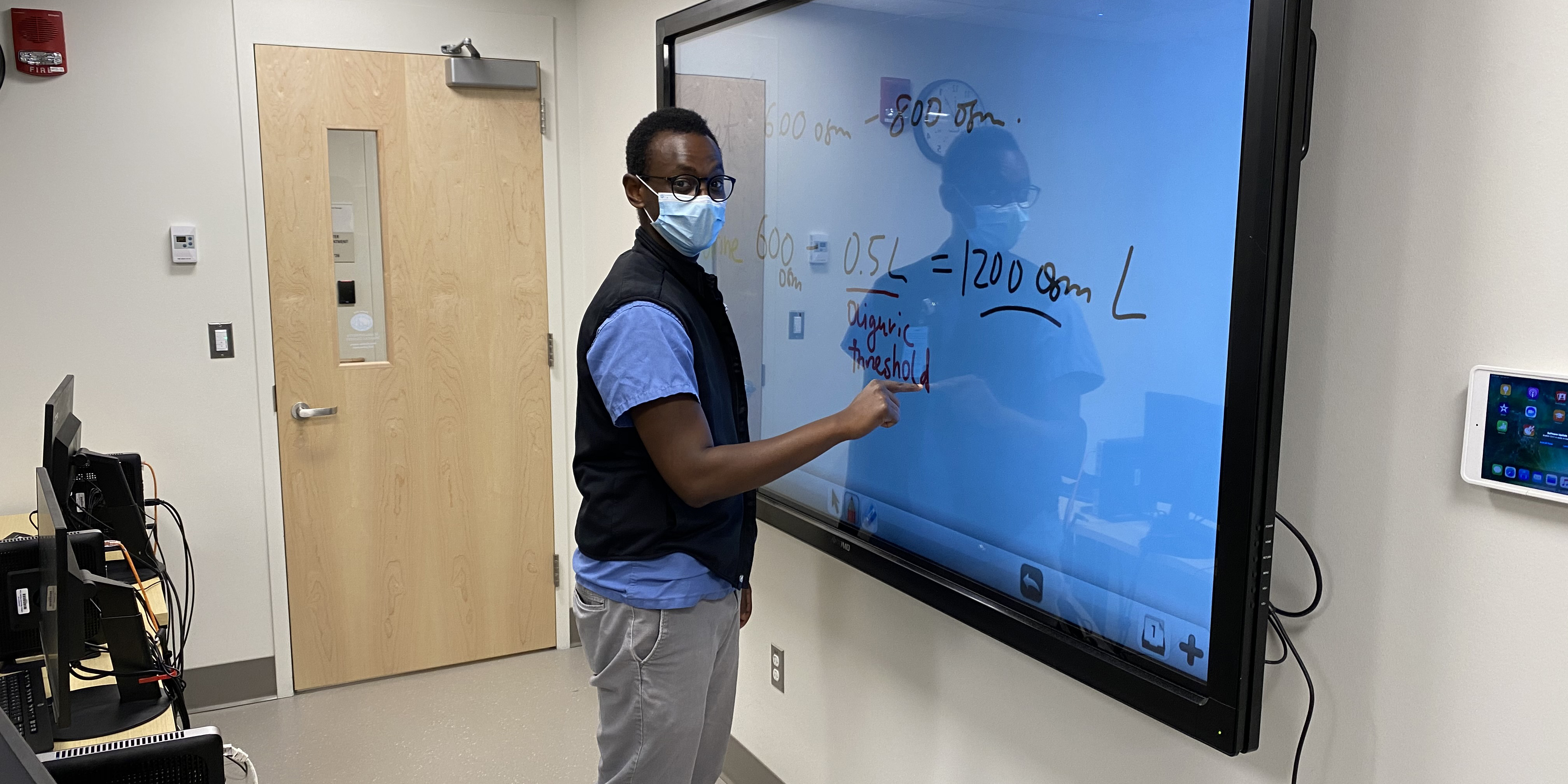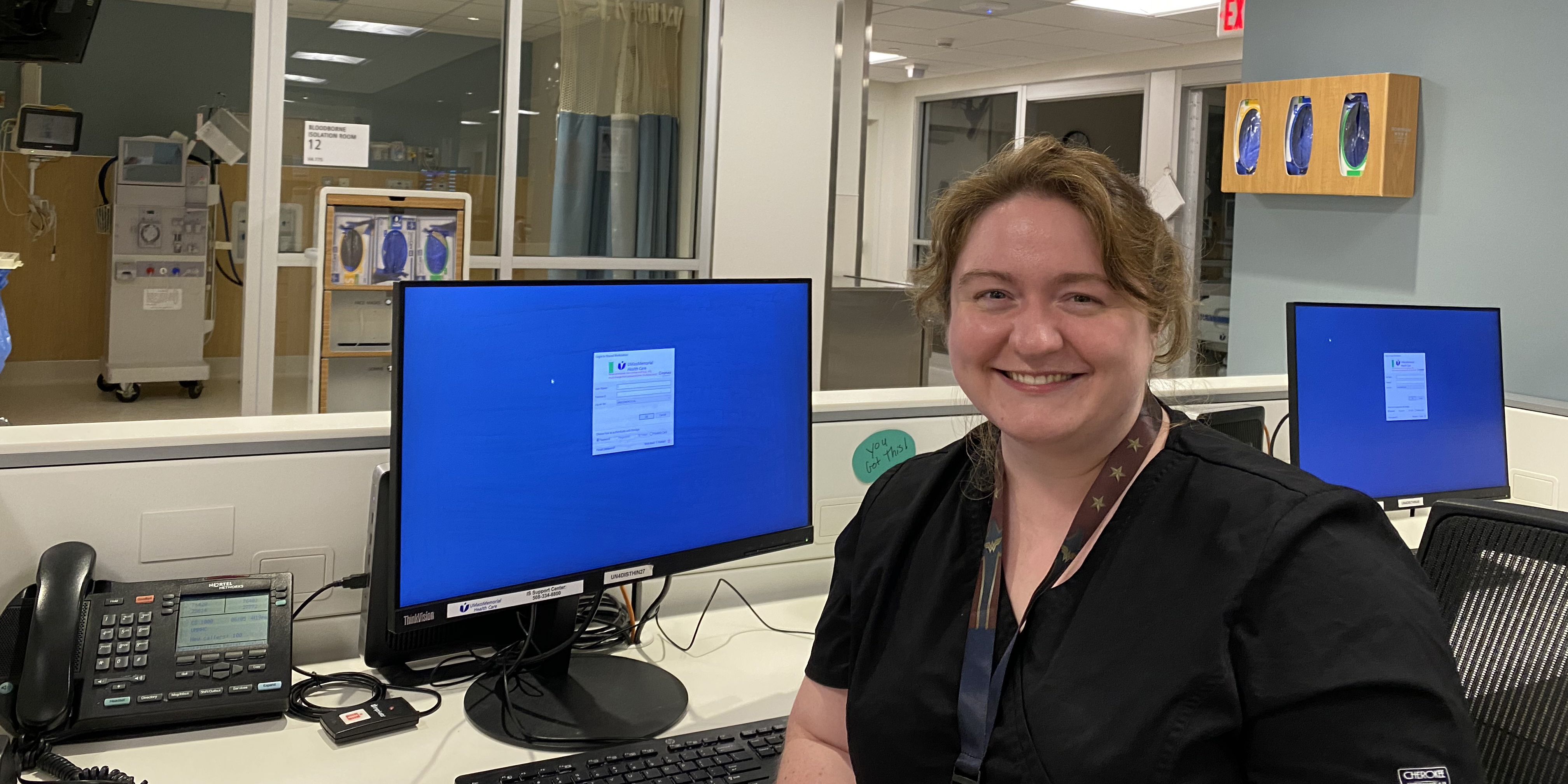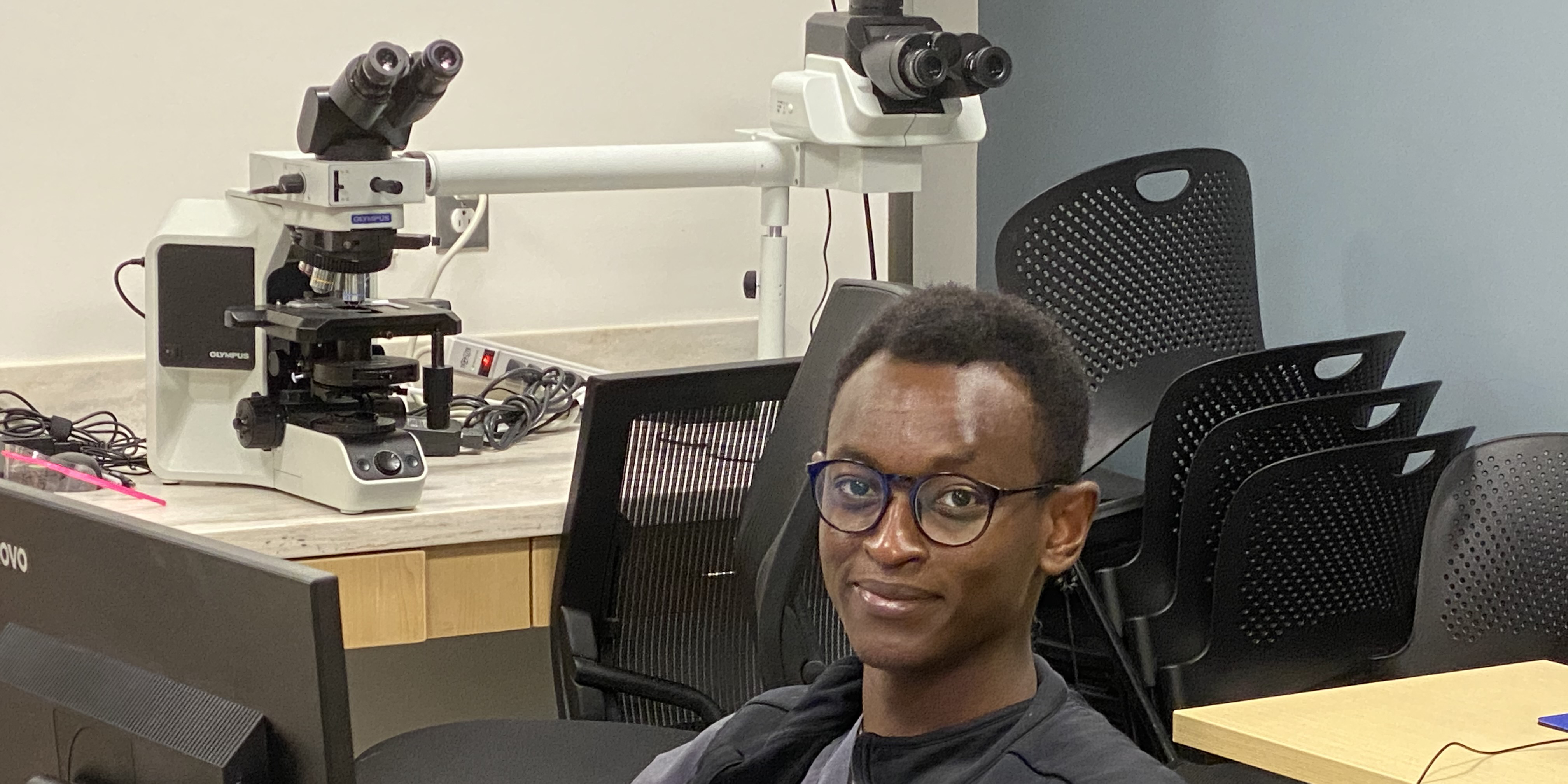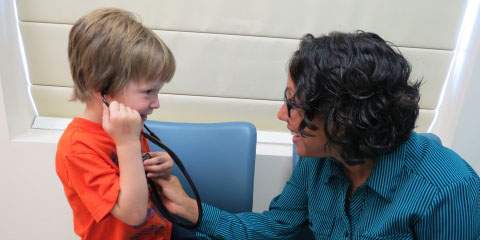Rotations
Renal Consult Service:

Nephrology fellows are assigned to the inpatient University consult service for 3 months during the first year and 1 month during the second year. The service is composed of several team members which include the fellow, an attending Nephrologist as well as medical students and residents assigned to the rotation. Consults are seen and evaluated initially by the fellow or other team member, and then discussed with the attending physician The Fellow or team member will follow – up on all active consults and participate in the ongoing evaluation and management. The Service provides the fellow with extensive exposure to a variety of inpatient nephrology related issues including acute kidney injury, electrolyte disturbances, glomerulonephritis as well as the care of critically ill individuals requiring CRRT. Team meetings are conducted in a state-of-the-art learning environment.
Transplant Service:
 Nephrology fellows are assigned to the inpatient transplant service for 3 months during the first year and 1 month during the second year. The service is composed of several team members which include the fellow, a transplant nephrologist as well as residents and medical students. While the team primarily completes new consults and follow-up on kidney transplant patients, the team is also involved in the care of a variety of transplant patients including pancreas, liver and bone marrow recipients. On average, 50-60 kidney transplants are conducted at the facility on a yearly basis. The educational focus includes management of kidney transplant related issues including induction therapy, treatment of rejection as well as complications related to chronic immunosuppression. During the rotation, fellows also participate outpatient transplant clinics including new patient evaluations and follow-up.
Nephrology fellows are assigned to the inpatient transplant service for 3 months during the first year and 1 month during the second year. The service is composed of several team members which include the fellow, a transplant nephrologist as well as residents and medical students. While the team primarily completes new consults and follow-up on kidney transplant patients, the team is also involved in the care of a variety of transplant patients including pancreas, liver and bone marrow recipients. On average, 50-60 kidney transplants are conducted at the facility on a yearly basis. The educational focus includes management of kidney transplant related issues including induction therapy, treatment of rejection as well as complications related to chronic immunosuppression. During the rotation, fellows also participate outpatient transplant clinics including new patient evaluations and follow-up.
End Stage Renal Disease Service:

Nephrology fellows are assigned to the inpatient ESRD service for 2 months during the first year as well as 2 months during the second year. During the rotation, the fellow works on a one-on-one basis with an attending nephrologist to provide consultative care to ESRD patients admitted to the hospital for a variety of issues. The educational focus during the rotation includes management of nephrological issues in patients with end-stage renal disease including volume management, anemia, secondary hyperparathyroidism and hypertension. The rotation provides fellows the opportunity to develop a level of comfort in writing inpatient dialysis prescriptions for both hemodialysis as well as peritoneal dialysis.
Clinic Rotation:
 Nephrology fellows are assigned to 3 months of the clinic rotation as first years and 1 month as second year fellows. During the rotation, fellows are assigned a half a day of clinic with different nephrologist in the division. This allows the fellow to experience a variety of different approaches clinical issues. Many attendings specialize in certain areas of nephrology such as glomerulonephritis, hypertension or nephrolithiasis which allows the fellow greater exposure to these topics. The second half of this day is unassigned with the expectation that the fellow be given a substantial amount of time to read and incorporate this information into their daily notes.
Nephrology fellows are assigned to 3 months of the clinic rotation as first years and 1 month as second year fellows. During the rotation, fellows are assigned a half a day of clinic with different nephrologist in the division. This allows the fellow to experience a variety of different approaches clinical issues. Many attendings specialize in certain areas of nephrology such as glomerulonephritis, hypertension or nephrolithiasis which allows the fellow greater exposure to these topics. The second half of this day is unassigned with the expectation that the fellow be given a substantial amount of time to read and incorporate this information into their daily notes.
Advanced Clinical Studies (ACS):
 Nephrology fellows are assigned to 4 months of ACS during their second year. During this month, fellow's participate in weekly continuity clinics and are also assigned a single second half day clinic per week. The remainder of the time is left to the discretion of the fellow to work on a variety of projects: case reports or other publications, fellow presentations, board preparation, or other academic projects.
Nephrology fellows are assigned to 4 months of ACS during their second year. During this month, fellow's participate in weekly continuity clinics and are also assigned a single second half day clinic per week. The remainder of the time is left to the discretion of the fellow to work on a variety of projects: case reports or other publications, fellow presentations, board preparation, or other academic projects.
Pediatric Nephrology Rotation:

Nephrology ICU Rotation:
This rotation focuses on management principles important to nephro-intensivists. Fellows will learn pathophysiology and gain experience treating acute kidney injury (AKI) and homeostasis disorders. They will become proficient at administering renal replacement therapy (RRT) in critically ill patients, including various forms of continuous renal replacement therapy (CRRT). Fellows will gain experience with placement of vascular access for dialysis under ultrasound guidance. They will perform the point-of-care ultrasound (POCUS) for volume assessment, evaluation for urinary obstruction and cardiac function. Particular attention will be placed on effective communication of renal-specific concerns with ICU teams during multidisciplinary rounds. Fellows will be trained to become skillful educators of patients and families about kidney dysfunction, prognosis, and dialysis options in the ICU setting.
Palliative Care Rotation:
Patients with advanced kidney disease need palliative care, which includes communication of prognosis and treatment options, determining goals of care, and symptom management. The ACGME considers the ability to provide palliative care an important milestone in patient care and professionalism. This mandatory 2-week palliative care rotation is designed to train fellows to lead difficult conversations with patients and their families. This training will be provided in both the inpatient and outpatient settings and will be precepted by faculty in the palliative-care division.

